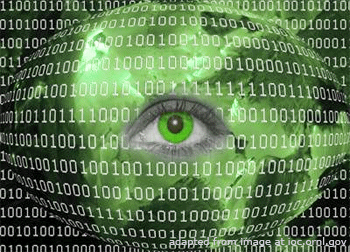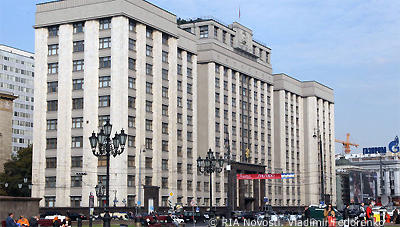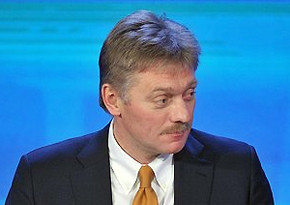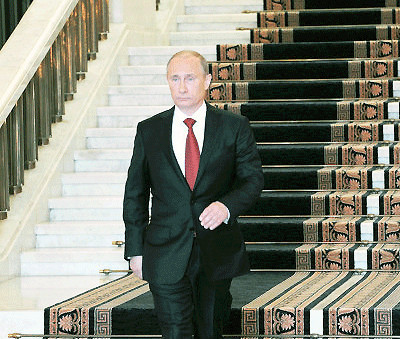Russian Bill On ‘Autonomous Operation’ Of Internet Advances In Duma

(Article text ©2019 RFE/RL, Inc., Radio Free Europe/Radio Liberty – rferl.org – February 12, 2019 – article text also appeared at rferl.org/a/russian-bill-on-autonomous-operation-of-internet-advances-in-duma/29765882.html)
Russia’s lower house of parliament has given preliminary approval to a bill that backers say is designed to ensure the operation of the Internet in Russia if access to servers located abroad is cut off.
 The legislation, which critics fear is part of an effort by President Vladimir Putin’s government to increase state control over the Internet and facilitate censorship, passed in the first of three votes in the State Duma on February 12.
The legislation, which critics fear is part of an effort by President Vladimir Putin’s government to increase state control over the Internet and facilitate censorship, passed in the first of three votes in the State Duma on February 12.
The bill was submitted in November and reflects persistent tension between Russia and the West, where governments have accused Moscow of using cyberattacks and social-media activity as part of an effort to sow discord and increase its clout abroad.
Proponents say the bill aims to make what they call the Russian segment of the Internet — known as the “runet” — more independent. They argue that it is needed to guard Russia against potential cyberattacks.
A note attached to the proposed amendments to the Law on Communications cited what it said was the “aggressive nature” of the U.S. cybersecurity strategy released in September 2018, in which, the note said, “Russia directly and without any evidence is accused of cyberattacks.”
Media reports on February 11 drew attention to the issue, saying that Moscow plans to temporarily disconnect from the global Internet sometime before April 1 to test its defenses against cyberattacks. No specific date was given, and the reports fueled concerns about state interference in the online activities of citizens.
 Putin’s spokesman, Dmitry Peskov, declined to comment on the bill on February 12, saying that “expert discussions” were continuing. Both houses of parliament are dominated by the United Russia party, which is loyal to Putin, meaning that passage is ensured if the Kremlin supports a bill, but some legislation is altered between the initial Duma vote and Putin’s signature.
Putin’s spokesman, Dmitry Peskov, declined to comment on the bill on February 12, saying that “expert discussions” were continuing. Both houses of parliament are dominated by the United Russia party, which is loyal to Putin, meaning that passage is ensured if the Kremlin supports a bill, but some legislation is altered between the initial Duma vote and Putin’s signature.
A Duma statement did not give the numbers of the vote on February 12, but Russian media reports said that United Russia supported it while the Communist Party, which has the second-largest Duma faction, criticized it. One of the bill’s sponsors is Andrei Lugovoi, a member of the nationalist Liberal Democratic Party of Russia (LDPR), but LDPR chief Vladimir Zhirinovsky said on Telegram that party members would not back it.
The bill calls for the creation of a system that would protect Russia in the event of a cyberwar while also filtering Internet traffic to the country, but there has been debate about how realistic that is and how much it would cost.
The legislation would require the installation of specialized equipment that would make it easier to block websites banned by the government with greater efficiency.
Among other things, the bill aims to do the following:
- Make it possible to minimize the dissemination abroad of information being exchanged by users within Russia.
- Require providers to submit to the centralization of Internet traffic in the event of a threat.
- Create infrastructure that would enable Russian sites to operate in the event that access to servers abroad is cut off or restricted.
- Provide for training and drills that would help key people in the Internet industry and government foresee threats and work out measures to counter them.
 Putin has repeatedly said that it is difficult to control the Internet, but the bill has added to concerns that the Kremlin is trying to do just that in hopes of muffling dissent in what could be his final presidential term.
Putin has repeatedly said that it is difficult to control the Internet, but the bill has added to concerns that the Kremlin is trying to do just that in hopes of muffling dissent in what could be his final presidential term.
With the state controlling or wielding major influence over broadcast media, in particular national television, the Internet has been used by Kremlin opponents and civil society activists to organize rallies and share opinion.
In March 2018, Putin’s then-Internet adviser, German Klimenko, said Russia would be prepared with its own segment of the Internet should Western nations seek to punish it by cutting off all access.
 Russia has been accused of carrying out cyberattacks and of using the Internet — particularly social networks such as Facebook and Twitter — to attempt to sow discord and interfere in elections in the West.
Russia has been accused of carrying out cyberattacks and of using the Internet — particularly social networks such as Facebook and Twitter — to attempt to sow discord and interfere in elections in the West.
In response, social networks have been aggressively seeking out so-called “troll farms” that use deceptive accounts to spread false information.
With reporting by RFE/RL’s Russian Service, Meduza, Reuters, Interfax, and TASS
